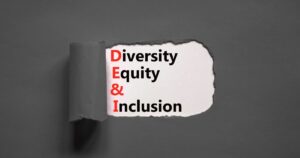
Fired or Laid Off for DEI Policy? Call John Cook!
Are you a private sector employee working for a federal contractor in Virginia? If you have been put on leave or fired due to DEI policies, you may have legal options. Our partner John Cook is dedicated to protecting employee rights and helping those unfairly targeted by changing political policies. Understanding New Executive Orders New executive orders aimed at undoing DEI hires have caused significant firings and layoffs across the country. These orders have implemented significant changes in the workplace policies for federal contractors. Unfortunately, these changes have led to some employees being laid off, demoted, or wrongfully terminated. If you have lost your job due to your involvement in DEI programs, you may have a case for wrongful termination, retaliation, or employment discrimination. Do I Have a Wrongful Termination Case? If you were fired or placed on leave due to DEI related policies, consider the following questions. Was I actively involved in DEI training or initiatives? Did my employer cite political or ideological reasons for firing me? Did my employer claim compliance with executive orders as a reason for firing me? Was I given unclear or shifting reasons for being placed on leave? If you answer yes to any





